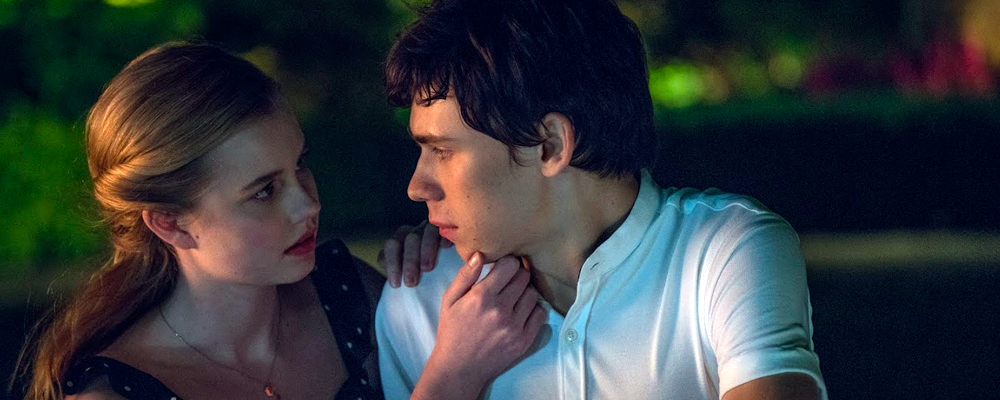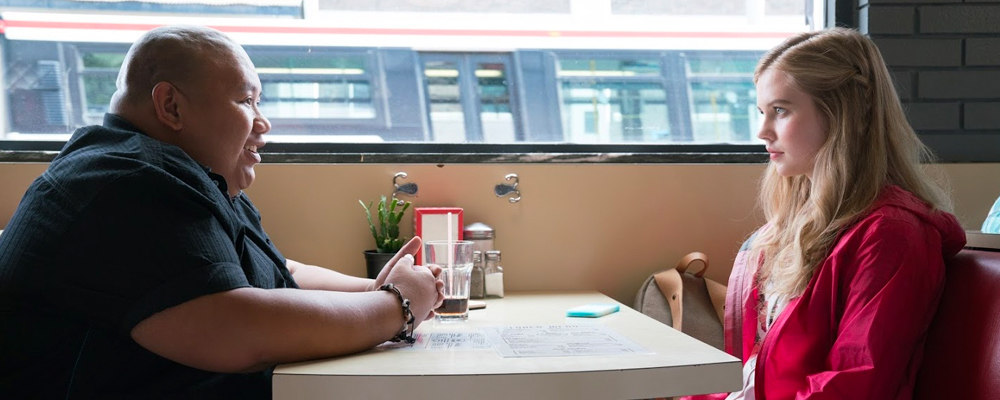Love Has Many Faces in Teen Romance ‘Every Day’
Alci Rengifo
Some ideas are wonderful as literature but do not translate that well to cinema. “Every Day” takes a bestselling young adult novel that is the definition of supernatural allegory and attempts to adapt it literally for the screen. What we’re left with is a film that is well-made on a technical level, but it leaves us scratching our heads with its basic premise. It explores the hassles of falling in love as a teen through the concept of an entity switching bodies every morning, just like that, no explanation provided. It’s almost like the ultimate hook-up movie, where you can keep seeing the same personality but in a different person. This could have been truly challenging, interesting material if it ever tried to go beyond the clichés of every other teen romance. The story and the film’s heart are in the right place, but the plot ends up coming across like New Age cheesiness.
Angourie Rice stars as Rhiannon, a suburban high schooler dating a selfish jerk named Justin (Justice Smith). One day she proposes they skip class and go have a fun day across town, he seems into it but the next day is back to his usual, controlling, mean self. What happened? Rhiannon finds out soon enough after meeting a boy at a party and later discovering he had been inhabited by “A,” a soul-like entity who inhabits a different person every morning no matter the gender. A had entered Justin the day his attitude slightly changed and is now fixated on Rhiannon. Through an elaborate system of texting, the two start hanging out constantly, even as A inhabits a new body every day. One day he’s a big guy at a diner, the next a home-schooled kid at the public library. When Rhiannon gets lucky A finds itself in the body of a fit handsome guy. The two begin falling in love but the reality starts looming that A isn’t an ideal partner when it depends on the temporary possession of different people.
Before going into the supernatural dilemma of the plot, it should be said that “Every Day” isn’t badly made in terms of its look. Director Michael Sucsy finds a strong visual tone with cinematographer Rogier Stoffers. Stoffers enjoys finding the rich colors of a setting and his previous work includes the epic “Mongol,” where the story of Genghis Kahn is told with gorgeous scenery. He films the suburban world of these characters with a vibrancy that brings energy to the story. When the music score isn’t an assortment of Top 40 hits, it has atmosphere and youthful melancholy. In the style of recent, better teen fare like “Thirteen Reasons Why,” Sucsy convincingly captures the current trends, obsessions and ways of thinking of the average high schooler.
Yet it is all surface to decorate a plot that falls on the sword of its own logic. The idea behind A is commendable and taps into the current idea that gender is fluid, in this case literally since A doesn’t know if tomorrow it will be a man or woman. Rhiannon dumps her douchebag boyfriend and discovers early love through a literal personality, plus it’s more fun for her (or is it?) because she has no idea who she’s getting tomorrow. The screenplay by Jesse Andrews enters into autopilot too early and never truly ponders the implications of this situation. Why does A only inhabit teenagers? Could A simply occupy a fresh corpse and just stay there? Wouldn’t that solve the film’s major dilemma in the third act? And the key question: Where does A even come from? There’s one scene where A awakens in the body of a boy about to go out of town with his parents. A panics because it means it won’t be able to see Rhiannon. But couldn’t A just leave the body of it’s some sort of traveling spirit? It is true that we are naïve as teenagers, but Rhiannon seems to accept this relationship way too quickly without being creeped out. There isn’t a spark of curiosity in her, she even takes one of A’s host bodies for a weekend at her uncle’s cabin. The dialogue never bothers to give this character the curiosity and intelligence to face and experience such an extraordinary occurrence. We almost wish Mulder and Scully would make a cameo. At one point near the end A worries what this ongoing relationship can do to Rhiannon, including the possibility it might one day awaken in the body of a married man. It’s the one, sole moment where the story realistically poses a legitimate quandary.
The young cast heroically delivers quite convincing performances within an unconvincing premise. Angourie Rice has some good scenes when her character is dealing with common day hassles and life’s stresses. Justice Smith oozes selfish aloofness as Justin. The best scenes involve these two actors together because the movie is more interesting when it just observes teenage life. Of A’s possessions the best one is Owen Teague as Alexander, because it is the only one where the tone changes as A begins to realize how impossible the situation is becoming.
David Levithan’s novel on which the movie is based has gained a wide fan following, and it is not hard to see why. On paper this is a story with much to say in its symbolism and themes which speak urgently to young adults. But precisely because it depends so much on an idea and allegory, as film it’s a bit whacky without the holes filled in or the narrative fleshed out dramatically. Maybe it’s like Marcel Proust’s In Search of Lost Time, as literature it evokes powerful moods and feelings, but capturing it on film would be nearly impossible without massive tweaks. “Every Day” may appeal to the book’s fans, but it might leave others not in wonder, but puzzled.
“Every Day” opens Feb. 23 in theaters nationwide.




